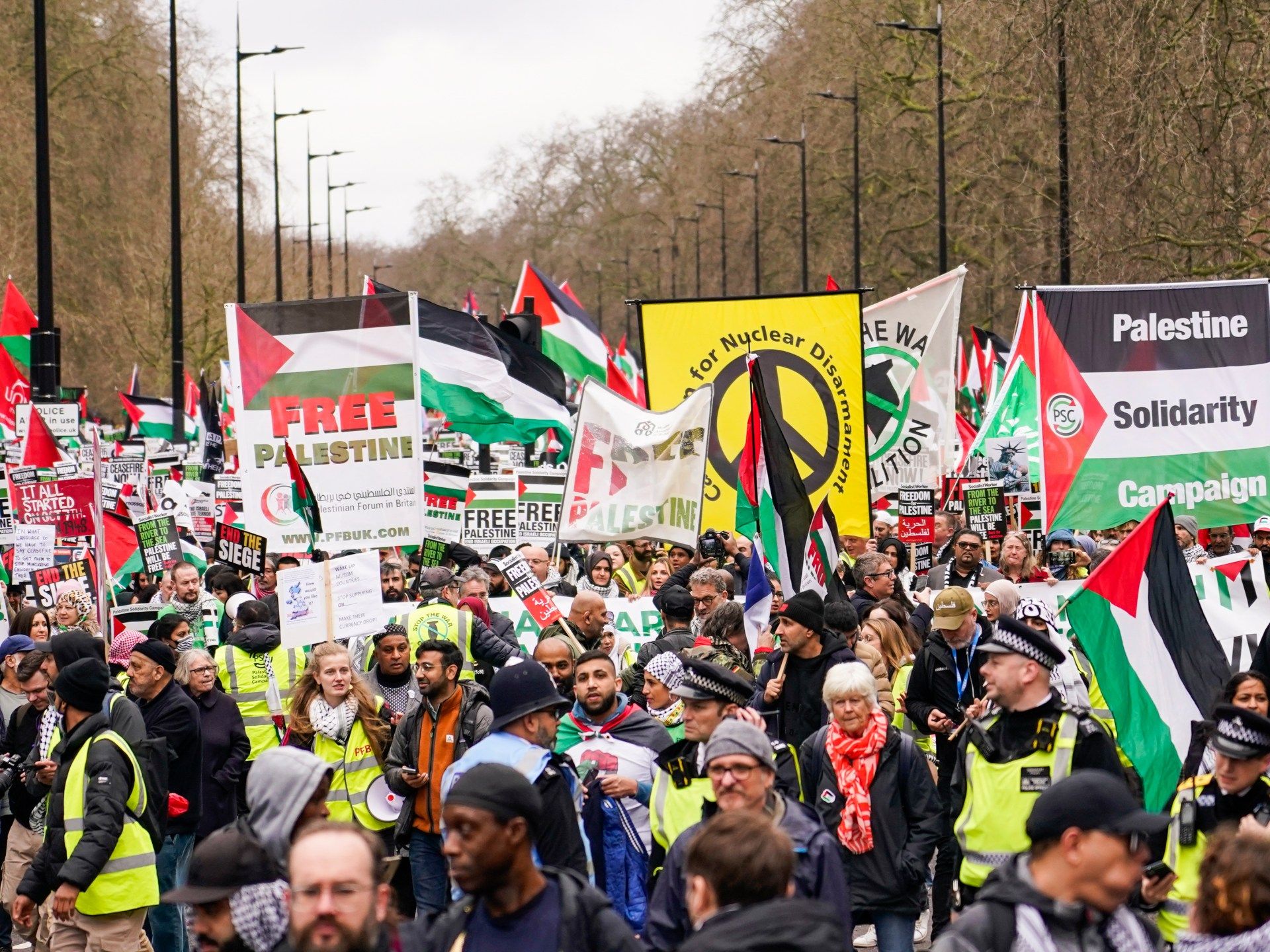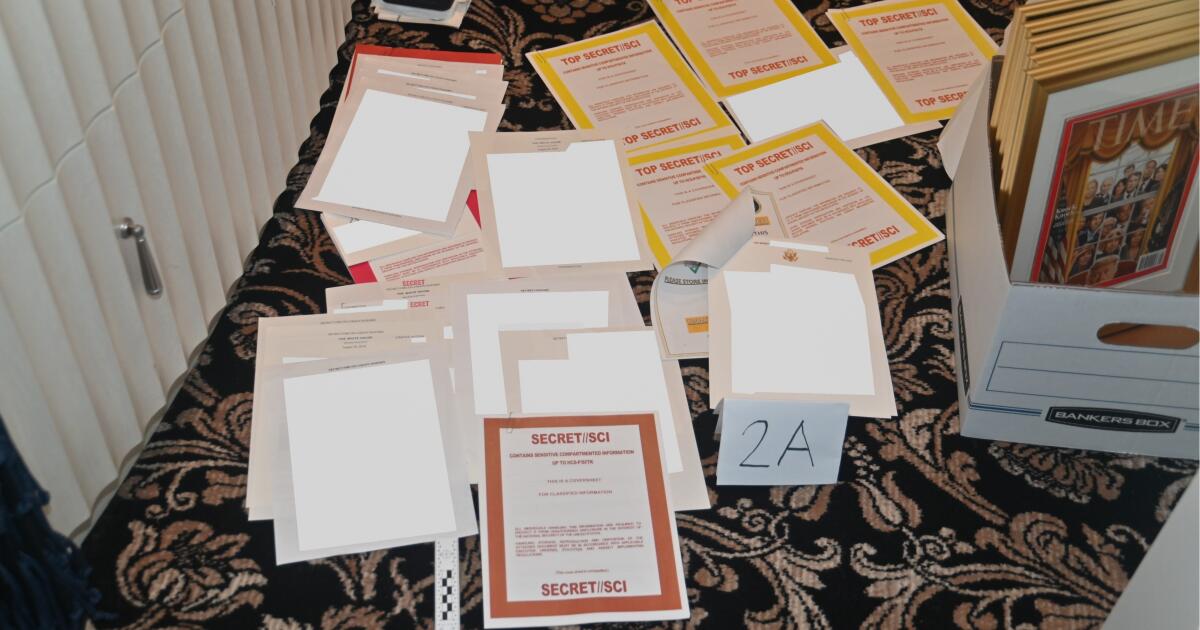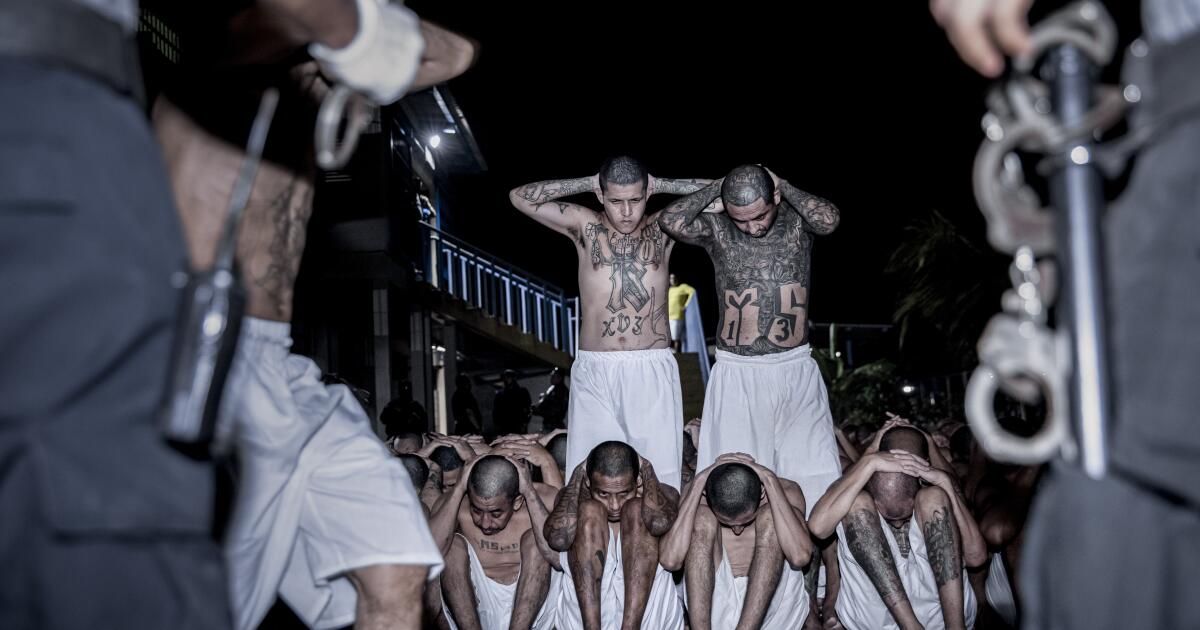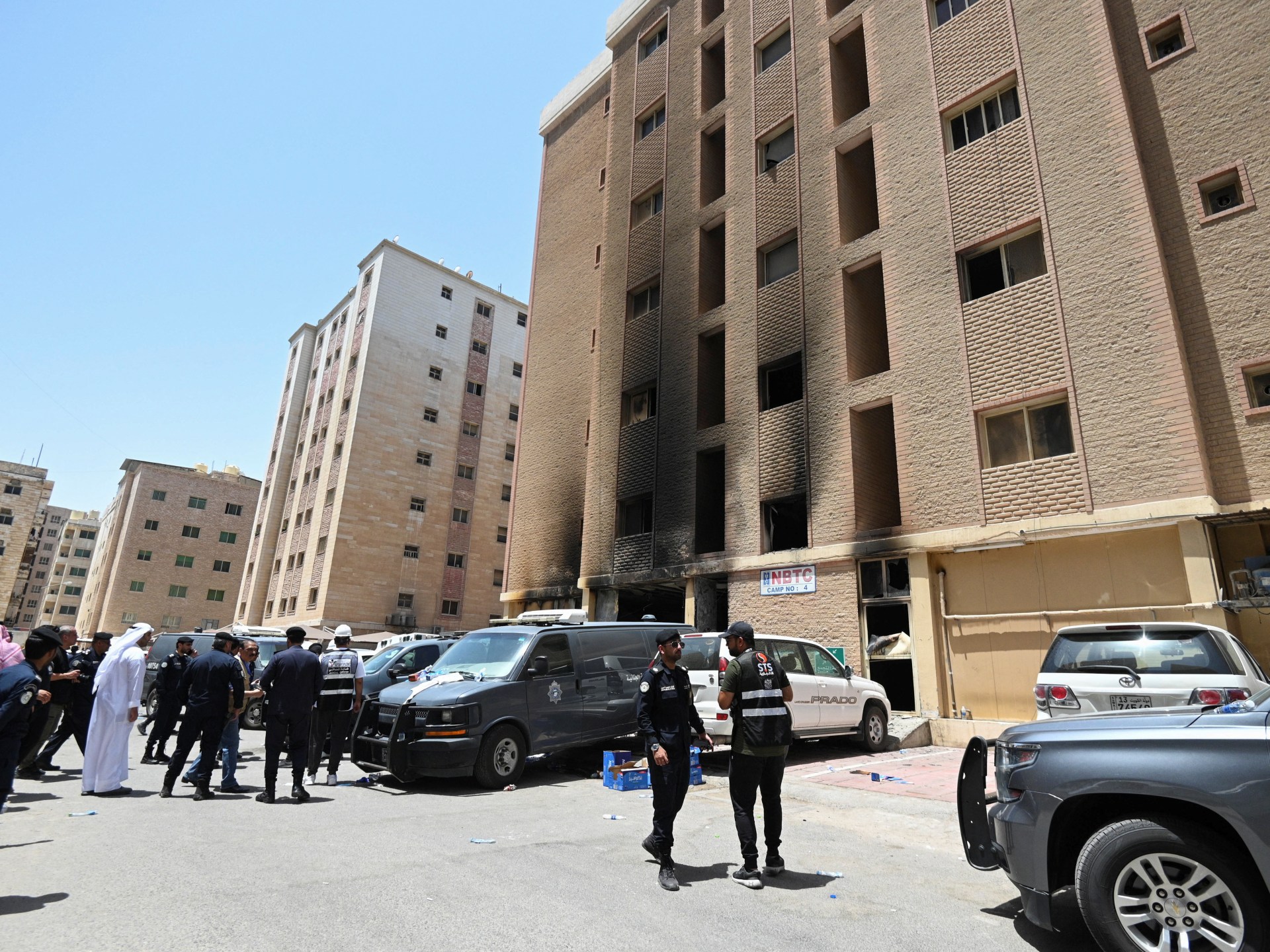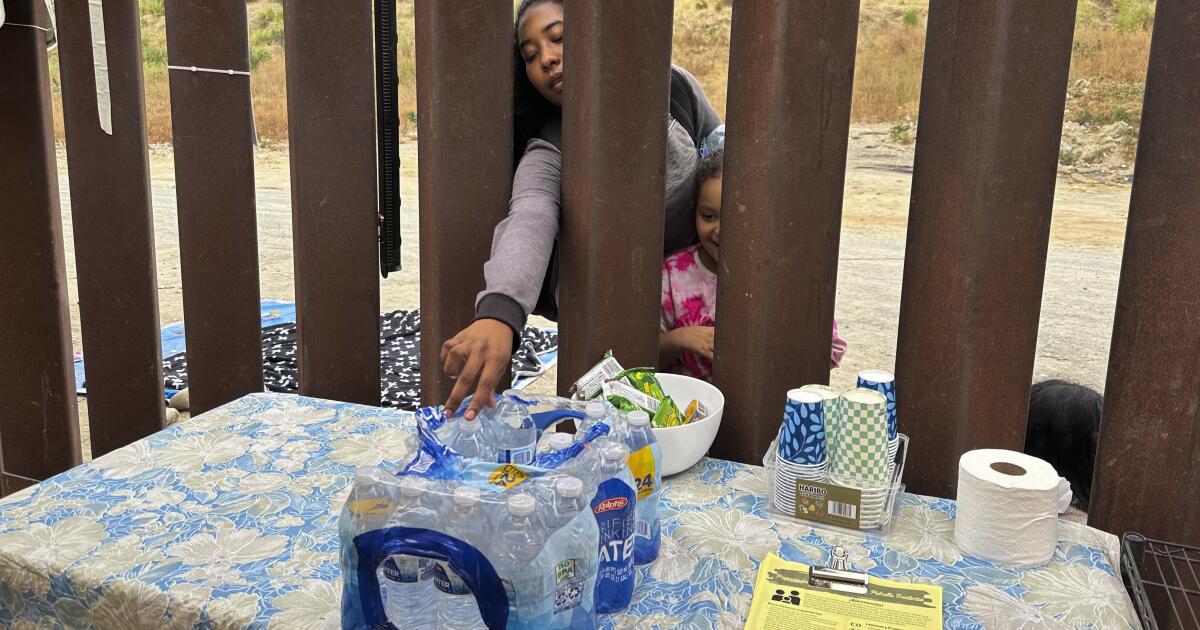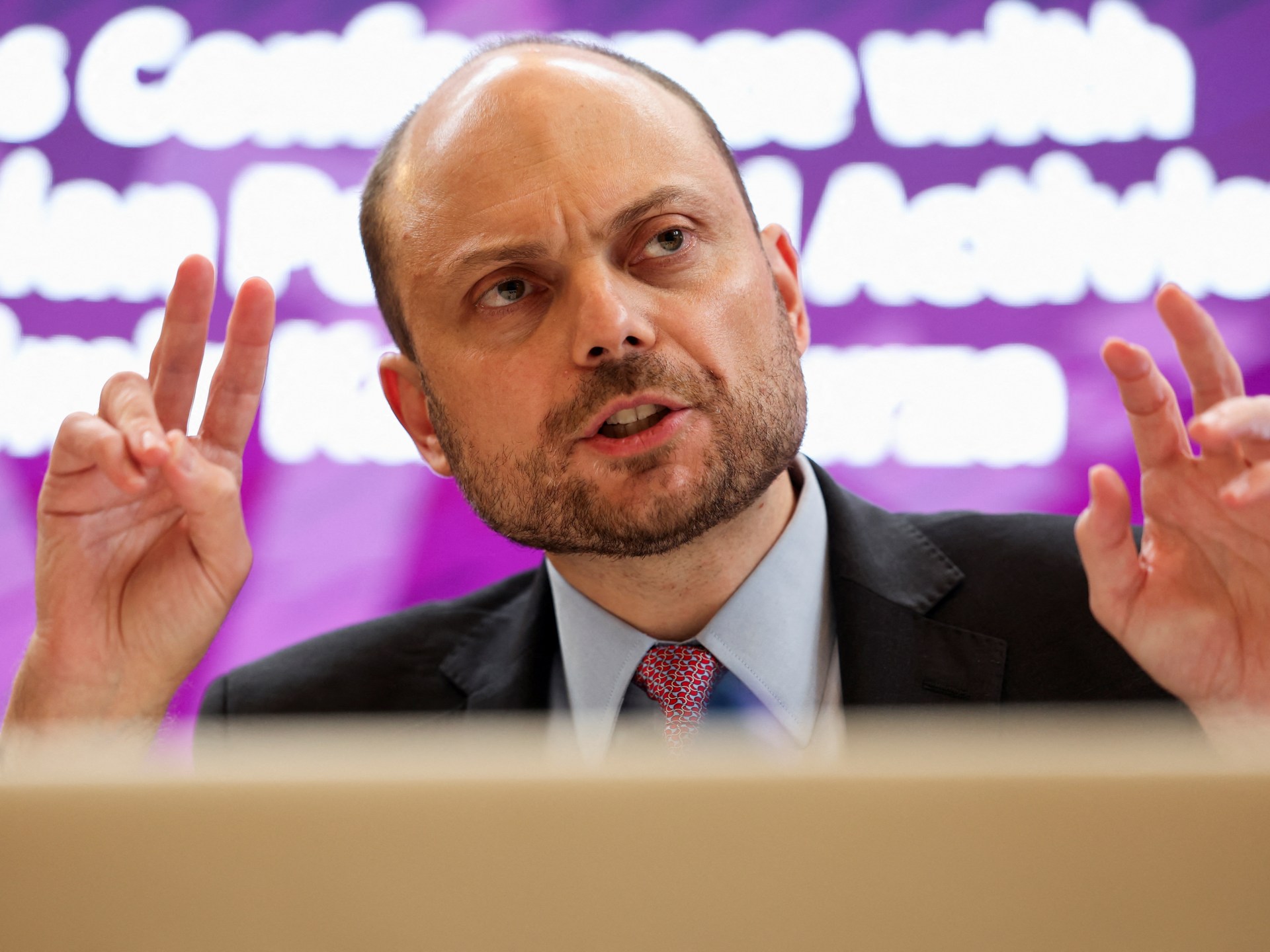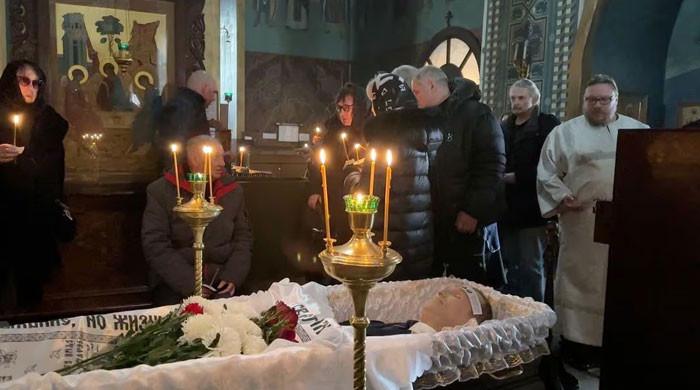Protests took place in major cities around the world, including London, Madrid and Istanbul.
Thousands of people have taken to the streets around the world to protest against the war in Gaza as Israel vows to press ahead with its offensive in Rafah in southern Gaza.
Waving pro-Palestinian flags and banners, thousands of people marched through the streets of Madrid, Spain, to demand an immediate ceasefire in Gaza.
The crowd snaked through the closed streets of the Spanish capital from the Atocha train station to the central Plaza del Sol behind a large banner that read: Freedom for Palestine.
Many carried signs reading “Peace for Palestine” and “Let us not ignore Palestinian suffering.”
Also participating in the demonstration were at least six ministers from President Pedro Sánchez's cabinet, five from the left-wing Sumar party, his junior coalition partners, as well as Transport Minister Oscar Puente, from the prime minister's socialist party.
“We need an immediate ceasefire, an end to the killings and attacks against innocents, we must achieve the release of all the hostages,” Puente told reporters at the start of the march.
In London, the capital of the United Kingdom, approximately 250,000 people participated in the protest demanding a ceasefire in Gaza, according to the Palestinian Solidarity Campaign (PSC).
Today 250,000 people took to the streets to demand an immediate solution #CeaseFire NOW to #StopGazaGencide. We will not stop until Palestine is free 🇵🇸 pic.twitter.com/NPE5nqJpuZ
– PSC (@PSCupdates) February 17, 2024
Al Jazeera's Harry Fawcett reported from London that, according to organizers, the demonstration taking place in London is expected to be among the top three in terms of size since the start of the war in Gaza in October.
“This could be an indication of growing concern about the situation in Gaza, on the cusp of Israel's intention to intensify military operations in Rafah in the south. YouGov has published a poll saying that two-thirds of people in the UK now support an immediate ceasefire,” Fawcett said.
Fawcett said the bulk of the march arrived in front of the Israeli embassy, where solidarity speeches and a static protest took place.
Organizers also timed the start of the march to ensure that an event at a nearby Jewish synagogue had ended.
More than 1,500 police officers were on the streets of London to monitor the protest.
According to the Metropolitan Police, 12 people were arrested for offenses related to banners, assaults on officers and refusal to remove their masks.
“Despite these arrests, the overwhelming majority of those who participated were peaceful and acted entirely within the law,” police said in a statement on the X social media platform.
Pro-Israel groups have attempted to paint the mass pro-Palestinian movement in the UK as anti-Semitic. The protest movement sees this as an attempt to cover up Israel's attack on Gaza, which has already killed nearly 29,000 people.
Pro-Palestinian protests also occurred in Sweden and other countries, where people demanded that Israel stop its offensive on Rafah and called for a ceasefire.
Demonstrations in Israel
Protests also took place in Tel Aviv, Israel's capital, and outside Israeli Prime Minister Benjamin Netanyahu's residence in West Jerusalem, with demonstrators calling for a prisoner and captive exchange deal and immediate elections in the country.
The demonstrations took place in the wake of Netanyahu's decision last week not to send an Israeli delegation to Cairo to continue negotiations on a deal to free more than 100 captives still held in Gaza.
The Hostages and Missing Families Forum called the decision a “death sentence” for the remaining captives.
But at a news conference on Saturday, Netanyahu denounced the possibility of elections in Israel right now. He also said that Israel's “military pressure is working” against Hamas, claiming that the army has “reached areas in Gaza that the enemy never imagined.”
“Whoever tells us not to operate in Rafah is telling us to lose our ear,” he added, stating that the Israeli army would attack Rafah – a city in southern Gaza that is now home to more than a million displaced Palestinians – even if it were reach an agreement. captive release agreement with Hamas.

